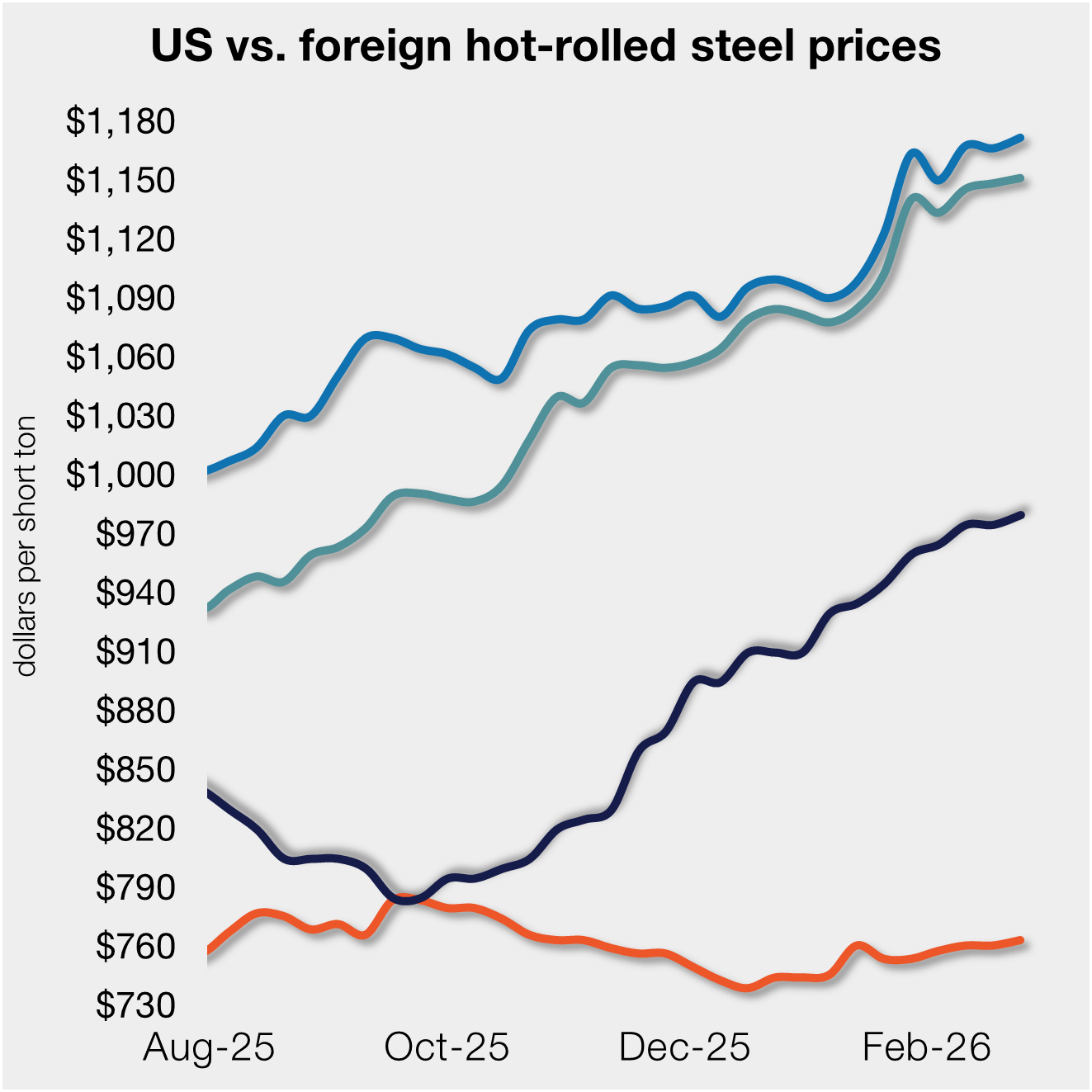Overseas

September 5, 2025
US-Brazil pig iron trade stalls heading into fall
Written by Stephen Miller
The Brazilian-US pig iron market has remained quiet, market sources told SMU.
It has been about a month since there has been activity in the Brazil-to-US pig iron trade. The last round of sales saw US mills quickly conclude four Brazilian cargoes after convincing the Trump administration to carve out an exemption to the increased tariffs on pig iron from Brazil. This tariff remains at 10% rather than increasing to 50%.
However, since then the market hasn’t shown much movement, Brazilian sources have told SMU. They are waiting for US-based mills to discuss future shipments.
Meanwhile, lower Phos pig iron from Ukraine continues to flow into the US. According to the Ukrainian State Custom Service, pig iron exports to the US totaled 150,000 metric tons (mt) in July. This is an increase over the last several months. The Ukrainian shipments have eased dependence on Brazilian material, but only to a modest degree.
Other than Brazil and Ukraine, tariffs and sanctions have made pig iron imports from other countries unworkable. And Russian material has been sanctioned for three years due to the conflict in Ukraine. The US mills had been able to import a limited amount of pig iron from India. However, a sharp increase in tariffs has severed any sourcing from that nation.
It should be noted Europe regularly imports nodular and foundry pig iron from Brazil. This type of specialty iron is used exclusively in the iron foundry sector and does not go to steel mills. Basic pig iron is sometimes included in these shipments to lower freight rates but not in meaningful quantities.
SMU spoke with a US-based trader who predicted the next round of buying will be sideways, despite the expectation US scrap prices may decline in September.
Another contact in Brazil told SMU the channels there are not expecting offers from American buyers until the September scrap markets settle. He mentioned any attempt to lower prices any further would be tough for producers to accept.







